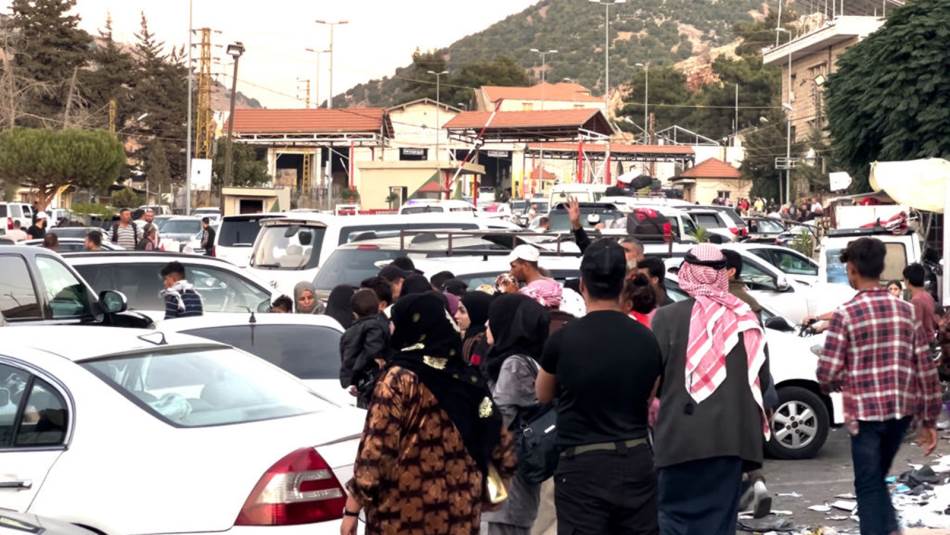Many displaced Syrians and refugees, particularly young people, continue to endure the harsh conditions in Lebanon rather than return to regime-controlled areas. They fear arbitrary arrest, especially with the recent increase in Israeli bombardment since September 23.
Last week, the Syrian Network for Human Rights reported the arrest of at least nine Syrian refugees, mostly from rural Damascus, on charges of deserting compulsory military service, with some failing to join reserve duty.
The Syrian regime had previously issued a decision exempting deserters and those wanted for military service from border settlement requirements. In exchange, these individuals receive papers valid for two months to review their military recruitment divisions, provided they are not sought by other security agencies. This situation underscores the deep-seated fears Syrians have about returning to their country.
Children and women are the majority of returnees
Abdul Rahman Sahib, a 27-year-old refugee from Homs, exemplifies the plight of many young Syrians in Lebanon. After his family returned to Syria at the onset of the Israeli bombardment on southern Lebanon, he sought refuge in Tripoli, where he now lives with other young Syrians.
They have transformed a small apartment in central Tripoli, which they rented before the recent escalation, into a reception center for displaced individuals, addressing the severe housing shortages in a city overwhelmed by the influx of families.
Abdul Rahman noted that most men prefer to send their families—women and children—back to Syria, albeit without proper security coverage. They harbor doubts about the regime’s adherence to its own officials’ decisions.
According to the Lebanese Risk and Disaster Management Unit, since the start of the Israeli escalation, approximately 240,000 people have entered Syria, including 176,080 Syrians and 63,373 Lebanese.
Fear of the unknown
Fear of the unknown has kept Suleiman from returning to Syria, even after arriving at the Masnaa border crossing. He ultimately chose to head to Sidon before being transferred to a temporary shelter in Tripoli with his wife and son, who decided to stay by his side.
Suleiman, who lived in Beirut’s southern suburbs, explained that the waves of mass displacement and heavy shelling initially prompted him to consider returning. However, as he approached the Syrian border, his resolve wavered.
“Certainly, I am required for compulsory service, but my biggest fear is being wanted for security or political reasons, like many Syrians abroad,” he said. “Additionally, reaching the SDF-controlled city of al-Busaira in Deir-ez-Zor is difficult, leaving me at the mercy of the regime.”
Discrimination by treatment
Human rights organizations, including the Syrian Network for Human Rights, have reported extensively on the Syrian regime’s arrests of refugees returning to Syria. Since 2014, the network has documented the arrest of at least 4,714 Syrians coming from Lebanon.
The Syrian Observatory for Human Rights reported that 35 Syrians were arrested on the Salamiya-Raqqa road after entering Syrian territory.
Meanwhile, Syrians who have sought refuge in areas deemed safe within Lebanon are facing harsh conditions and discrimination. The increasing number of displaced individuals has overwhelmed shelters established by humanitarian and government organizations to accommodate those fleeing from southern Lebanon, according to the Office of the High Commissioner for Refugees in Lebanon.
This article was translated and edited by The Syrian Observer. The Syrian Observer has not verified the content of this story. Responsibility for the information and views set out in this article lies entirely with the author.


